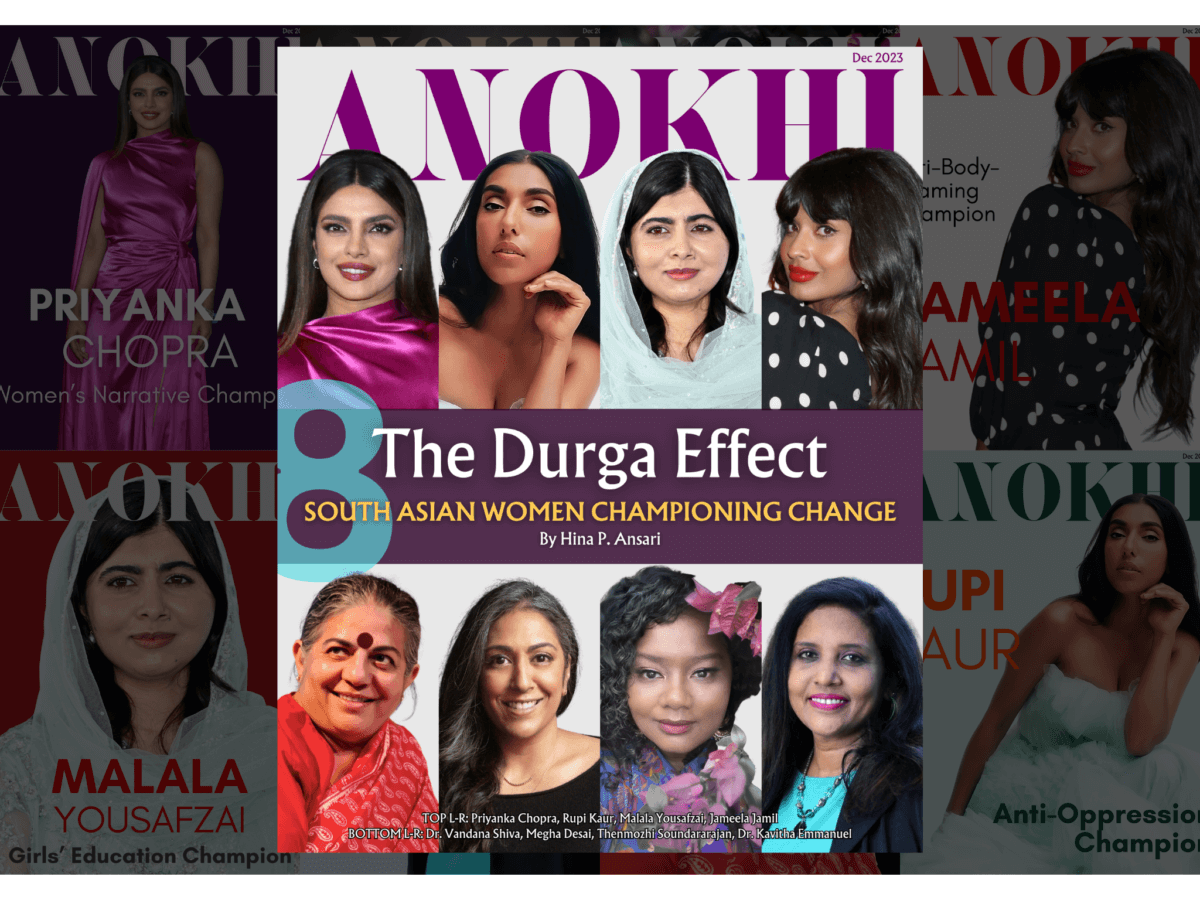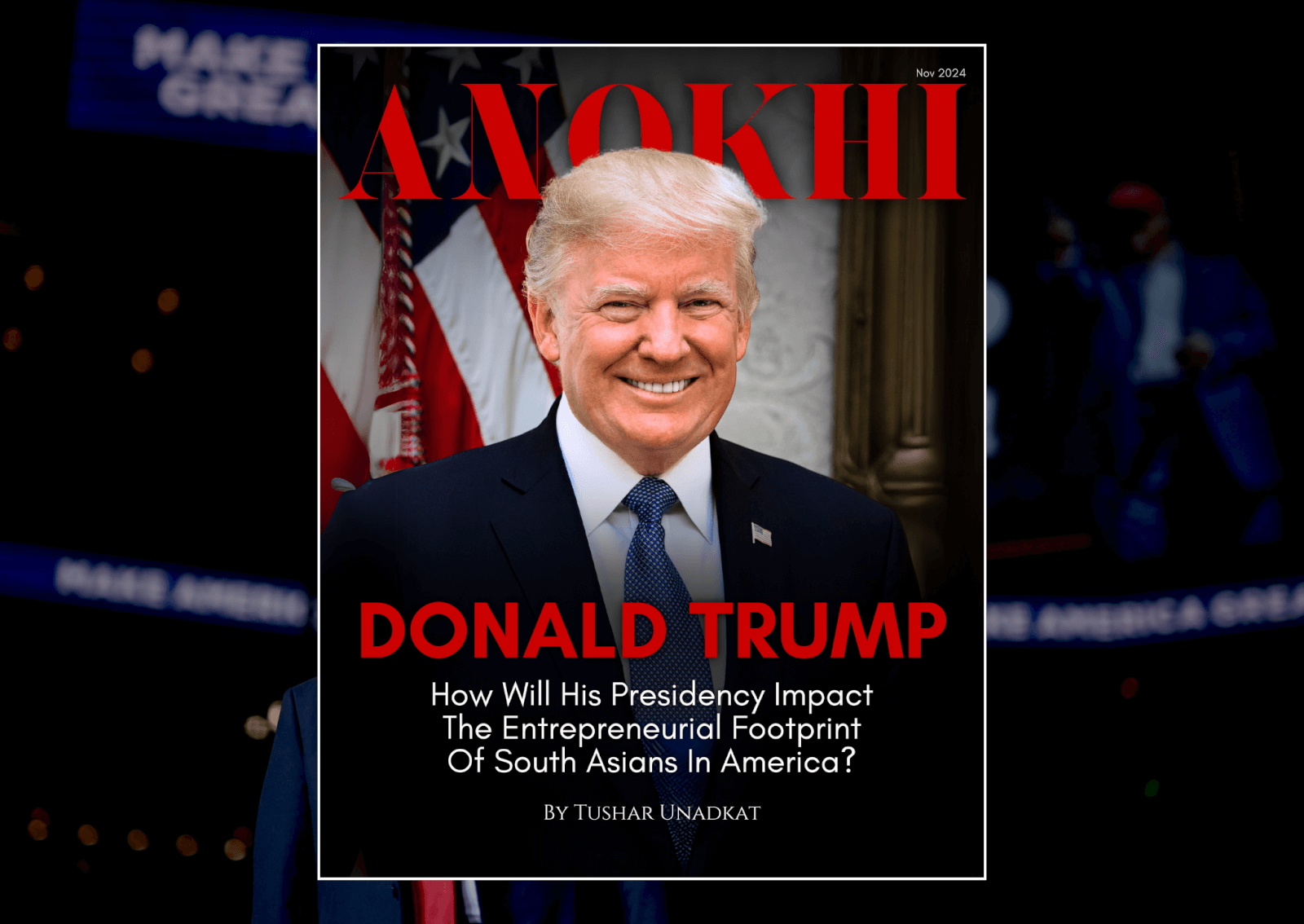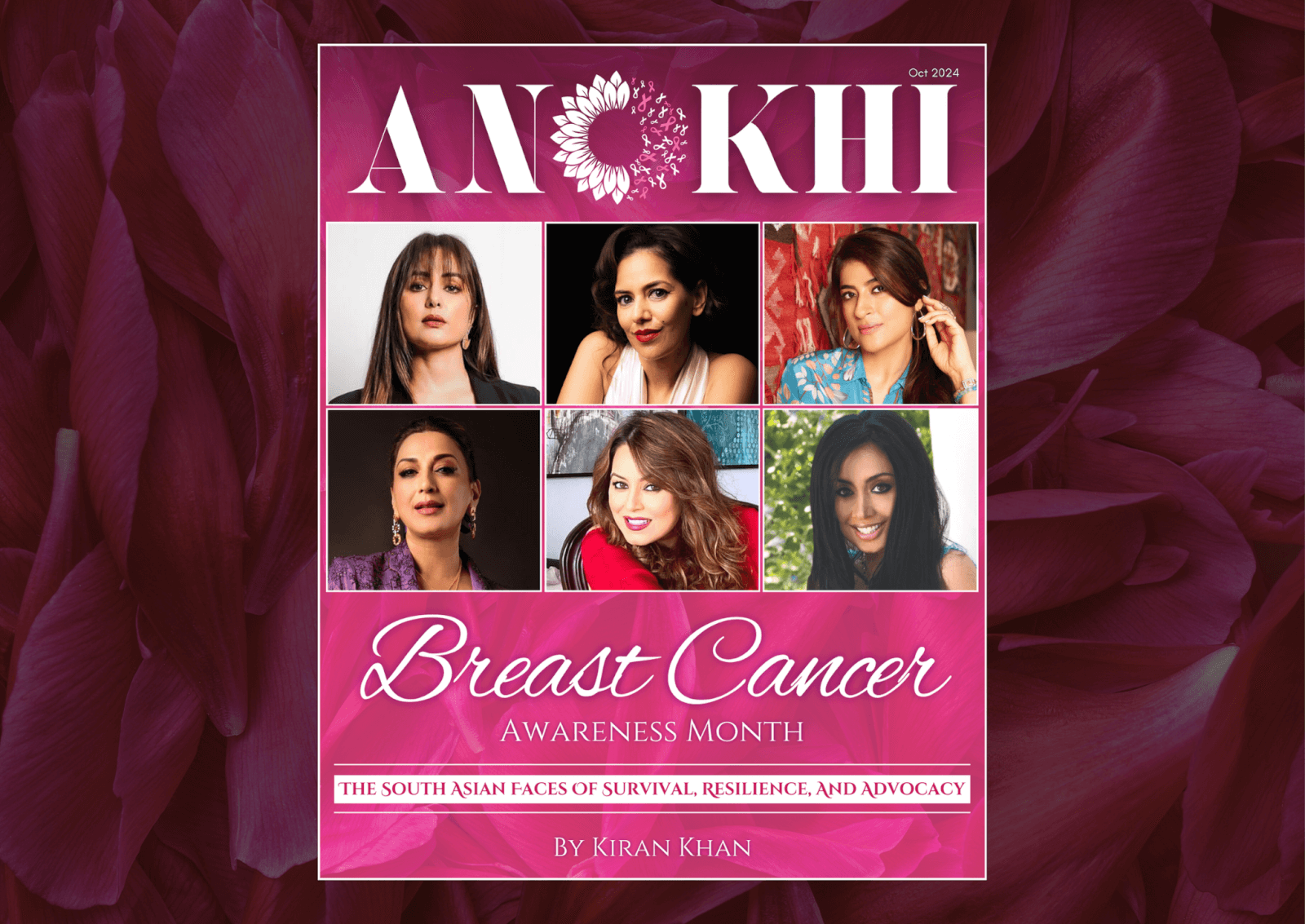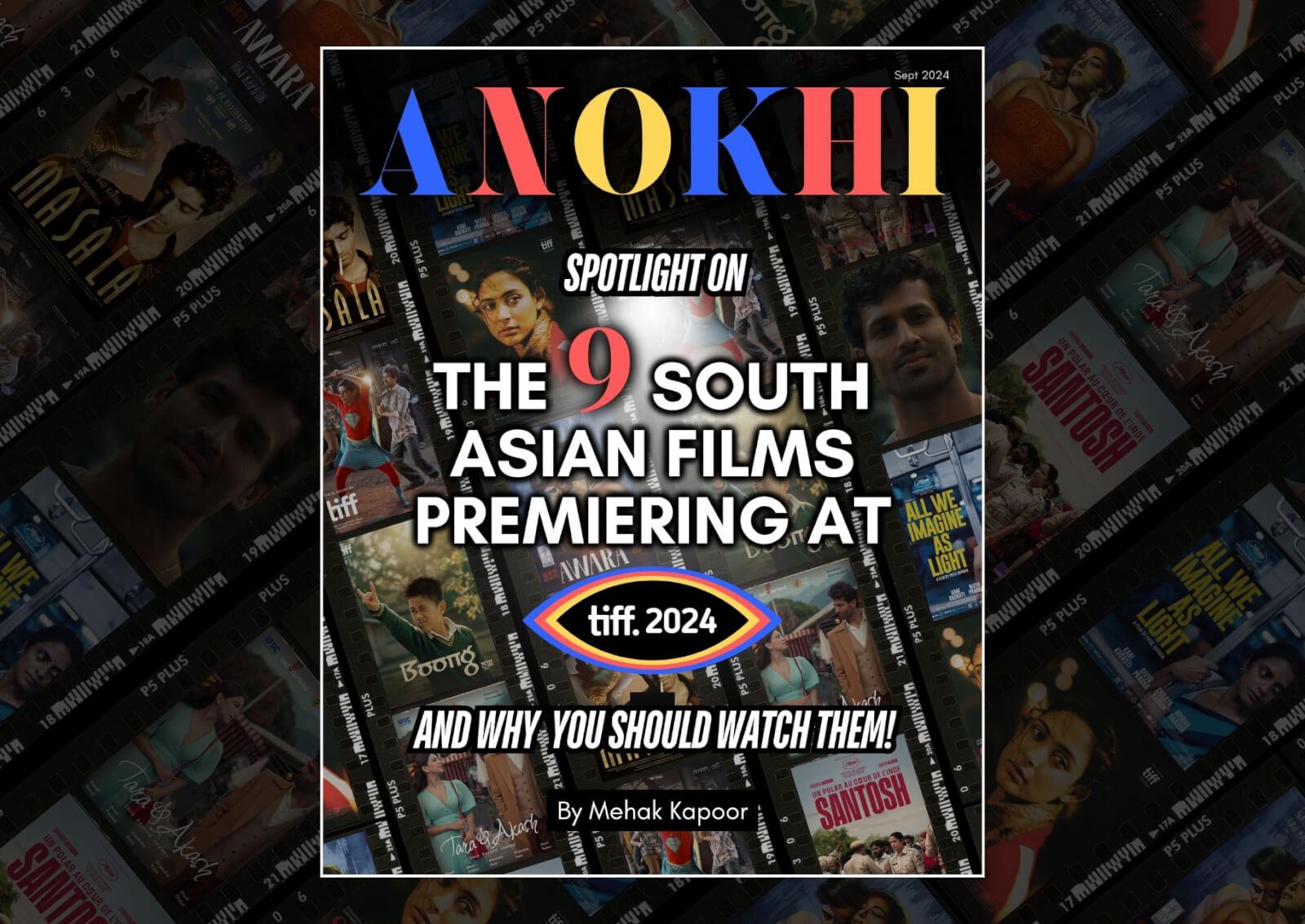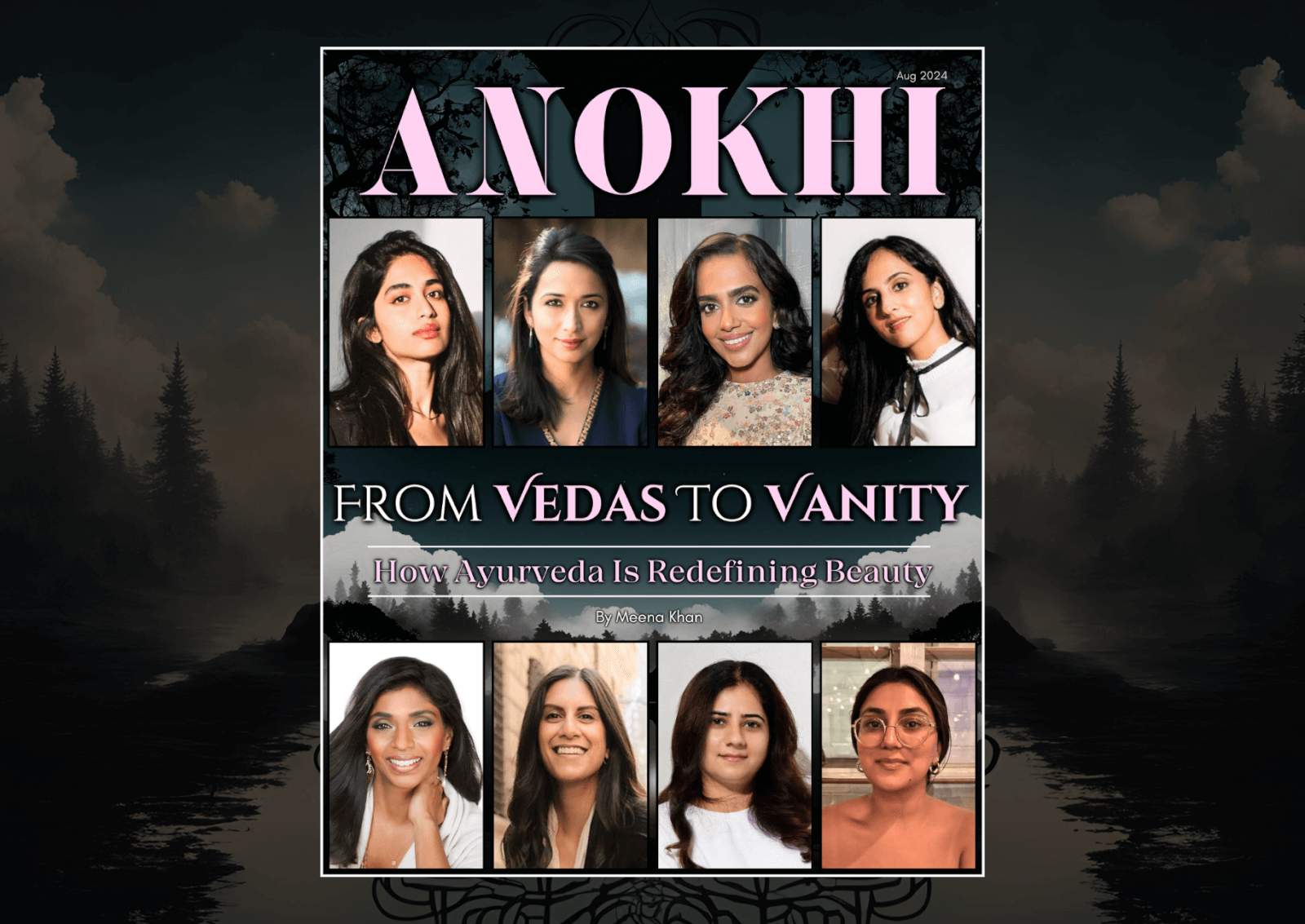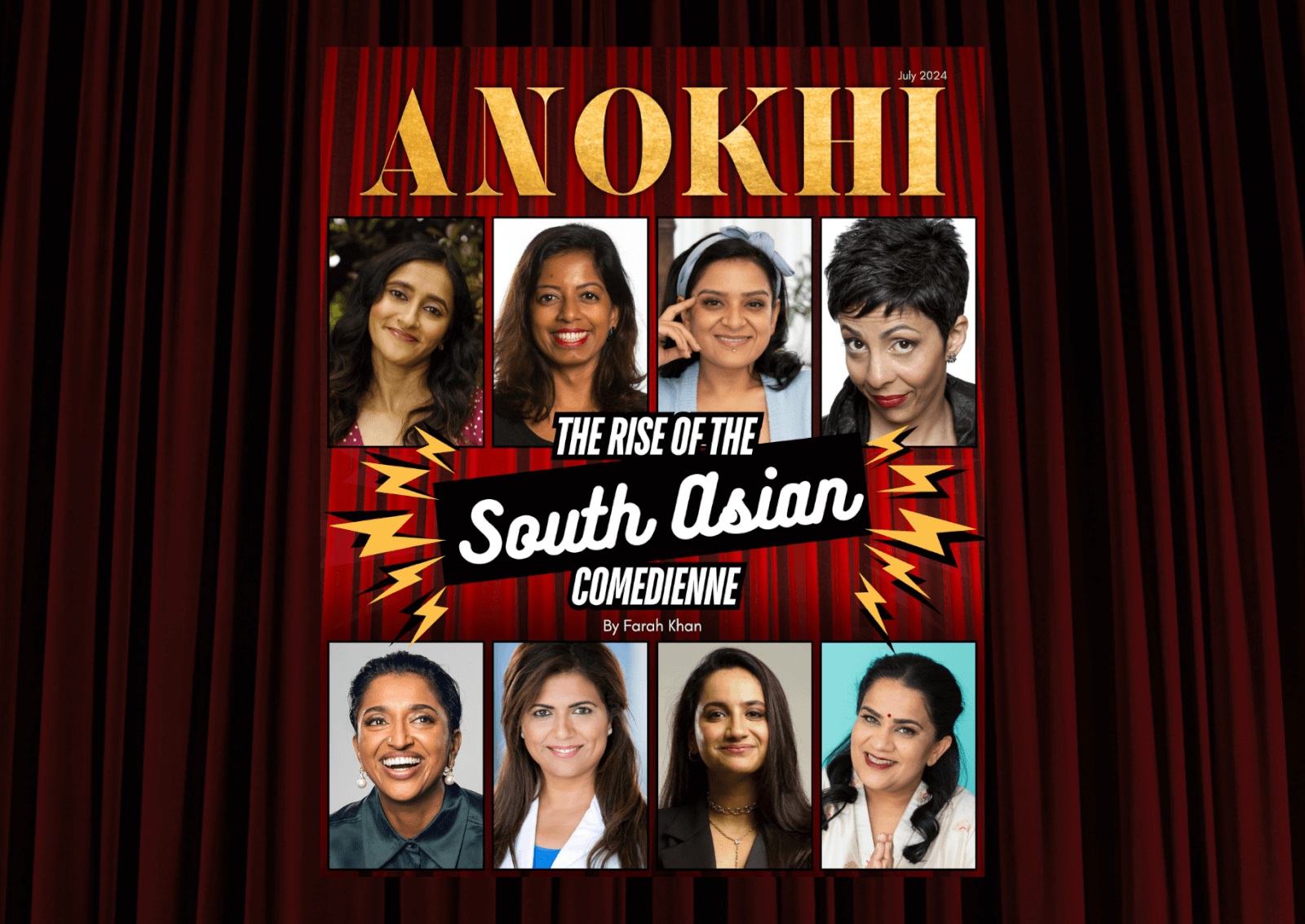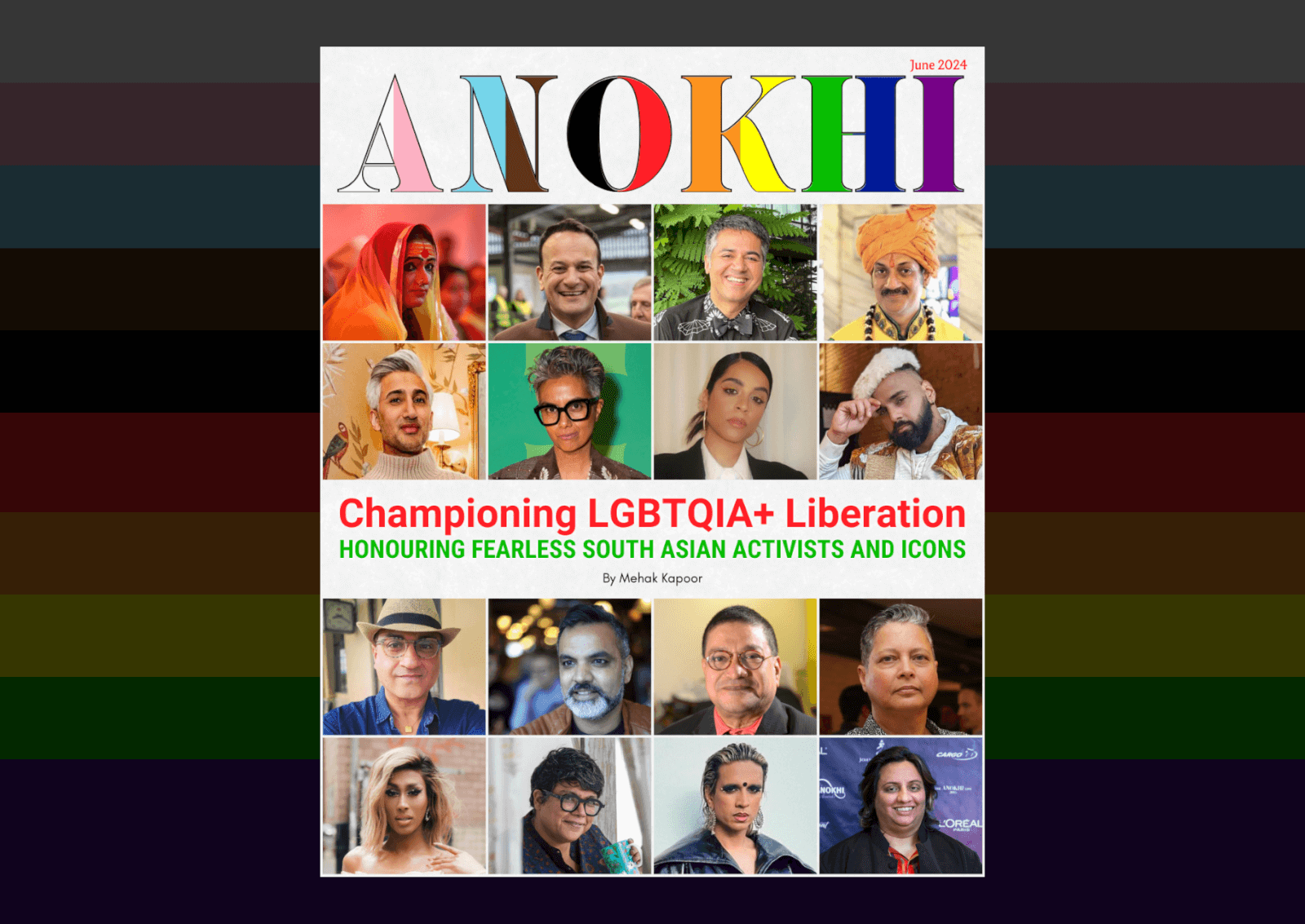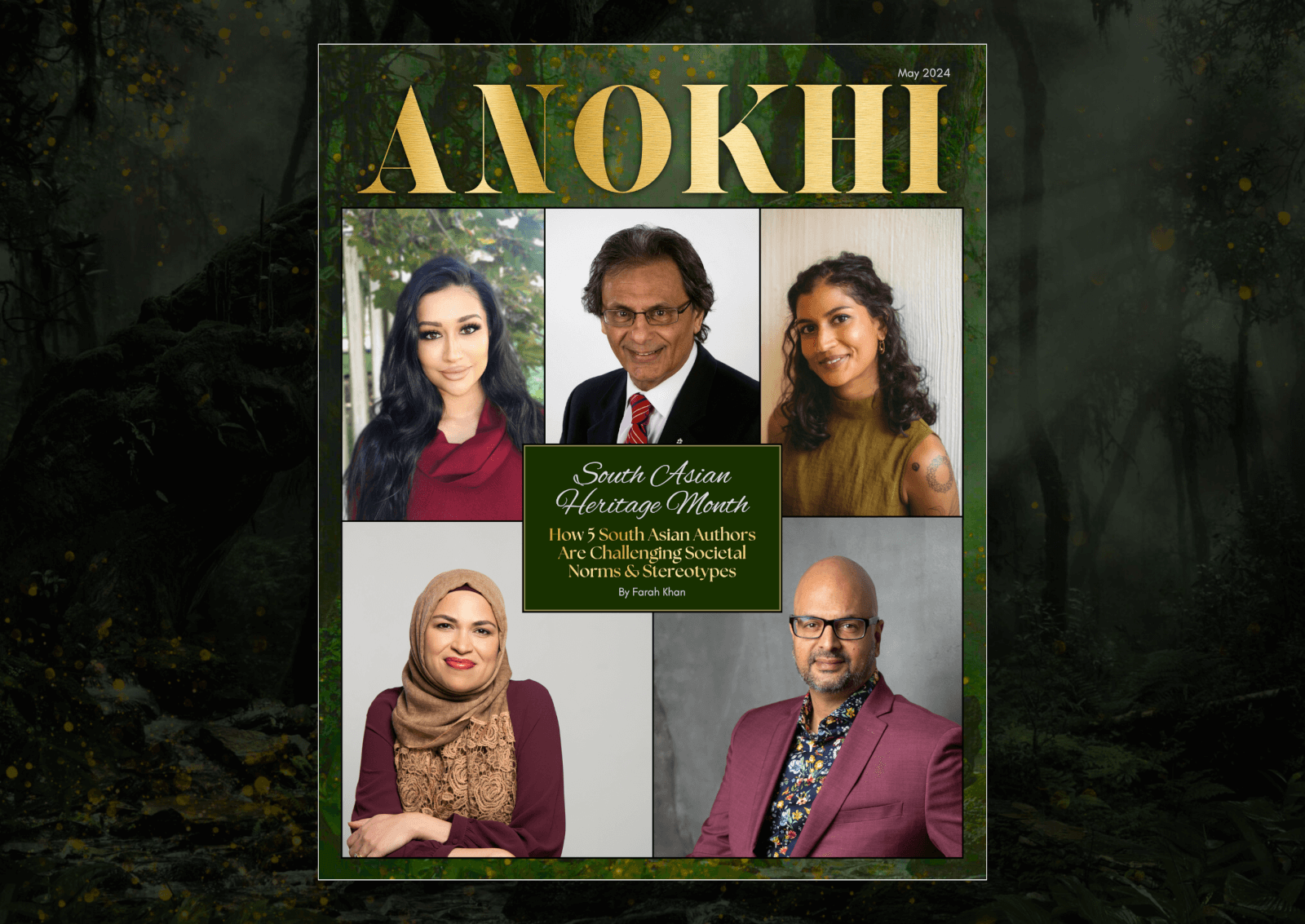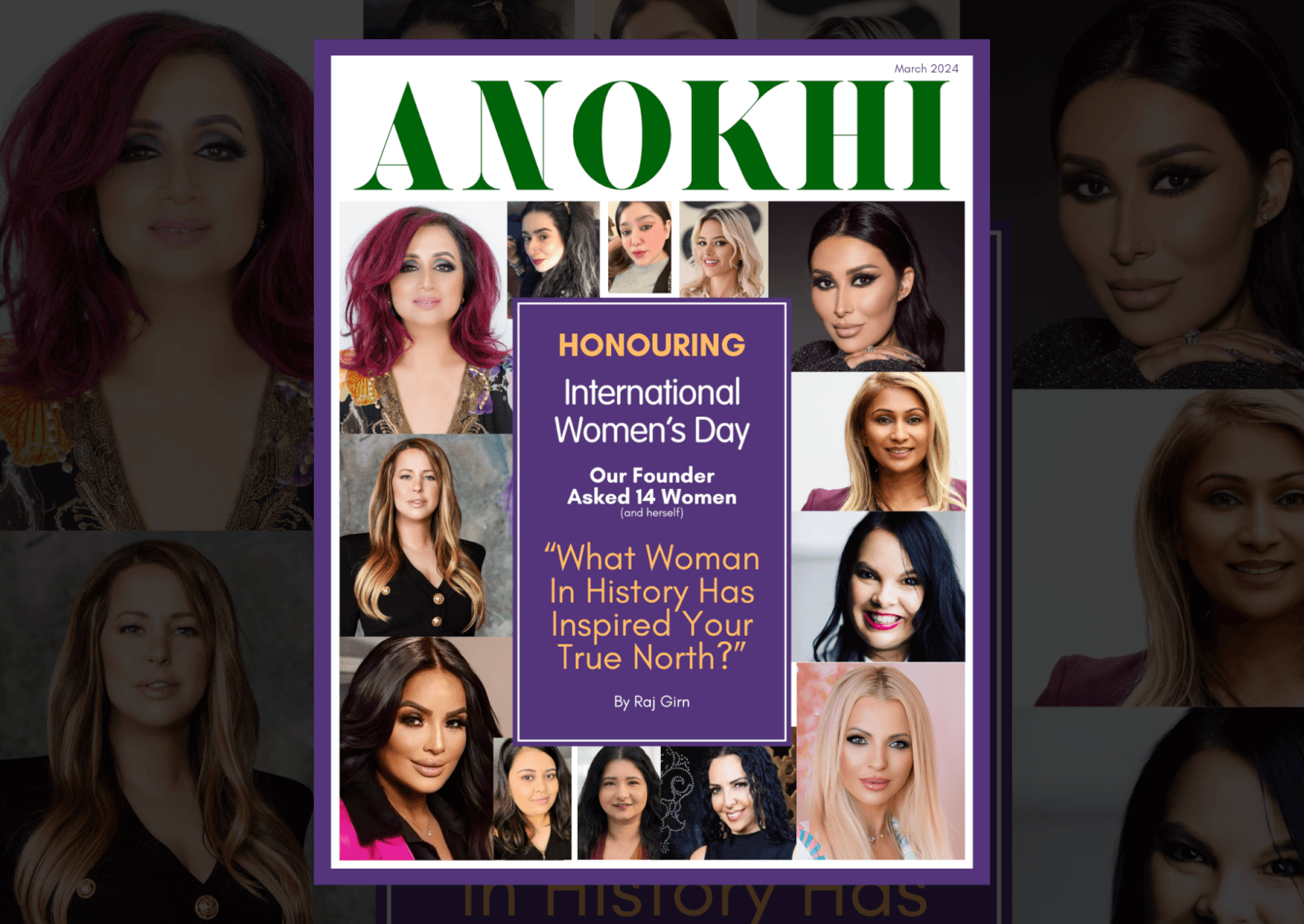When our founder, Raj Girn shared with me her desire to re-launch our cover stories series for the ANOKHI Magazine blog, she had a very distinct vision in mind.
“I want us to have the ability to spotlight the successes of people in our community and what they are doing to elevate the South Asian community, the industries they work in, and the communities they live in, all year round, and not just once a year during our anniversary when we highlight them in The ANOKHI List,” Raj explained. “Times have changed since I first launched the ANOKHI brand in 2002, when there were a handful of South Asians doing big things. Today, there are so many of us in every industry, in every walk of life, who are contributing in big and impactful ways, and I want ANOKHI to have a place where they can be highlighted regularly in a meaningful manner.”
We have defined these cover stories to be in 3 styles:
- Profiles: Spotlighting one individual and their story,
- Q&As: Conversations with prominent personalities,
- Themed Lists: Showcasing a collective of individuals around a common theme.
To kick things off, on behalf of ANOKHI, I’m pleased to present the first cover story, where we are showcasing a collective of individuals around a common theme. The Durga Effect – 8 South Asian Women Championing Change is our homage to the service of 8 women from our community. These women have and continue to make huge strides globally, for initiatives they believe in. Initiatives, which have exposed them to barriers and risks, but they have forged ahead regardless, for the greater good of mankind.
In this cover story, we refer to these 8 remarkable women as “champions of change” akin to the Hindu Goddess Durga, who battled evil to save humanity and emerged victorious. Durga represents the Shakti of divine feminine energy, which when harnessed, has the ability to overcome great adversities through courage, strength, and resilience.
Here are 8 (of the many) South Asian women who fit this mold . . .
Cover Story
The Durga Effect – 8 South Asian Women Championing Change

1. Jameela Jamil: Anti-Body-Shaming Champion

This British actor (The Good Place) is also a presenter, podcaster and founder of I WEIGH, an online hub dedicated to amplifying voices of those who are fighting for change. She has also created her own brand ensuring that there is plenty of self love to go around. Self love for women to be exact. With her anti-body-shaming mission, Jamil has been effectively using social as her platform to spread messages and reveal truths about such harmful actions including various cleanse diets, the use of Botox and the pressures that women, especially women of colour who are being expected to fit into a certain mainstream beauty mold. She practices what she preaches as well, telling Glamour magazine in a 2021 interview that she also will only work for brands who agree to not photoshop or edit her pictures. Which is why “I haven’t done any big beauty campaigns in like 8 years, because it’s really hard to get people to relinquish that fear of letting people see your pores or stretch marks.” Speaking of stretch her decision not to cover up her breast stretch marks in a scene from The Good Place earned her high marks and adulation from her fans for her being just herself.
2. Dr. Kavitha Emmanuel Anti-Shadeism Champion

You have Dr. Kavitha Emmanuel to thank for the iconic “Dark Is Beautiful” anti-colourism/anti-shadeism campaign which had Nandita Das at the forefront combatting the cultural problem of favouring lighter skinned over the darker hue. The Founder and Director of Women of Worth, India the organization behind the 2009 campaign understands that changing people’s perception to embrace skin colour diversity is an engrained generational mindset. With the #BlackLivesMatter movement being born out of the tragic death of George Floyd in 2020, the idea of white-centred narratives was challenged with various companies including Johnson and Johnson discontinuing their skin-lightening products. “Conversations over the past few weeks highlighted that some product names, or claims on our dark spot reducer products, represent fairness or white as better than your own unique skin tone,” Johnson & Johnson said in a statement. “This was never our intention—healthy skin is beautiful skin.”
“I hope people see that colourism is not a surface-level issue,” Dr. Emmanuel responded in a Forbes India interview that same year, “So ‘dark’ or ‘black’ is not just beautiful. We are talking about people here. We are all human in the first place and deserve equal dignity and equal rights everywhere. To promote one race, colour or caste over another is to dehumanise the others. So as a campaigner for the equality of people of all shades, I sincerely urge film makers, script writers and business owners to prioritise responsible advertising and entertainment.”
3. Malala Yousafzai: Girls’ Education Champion
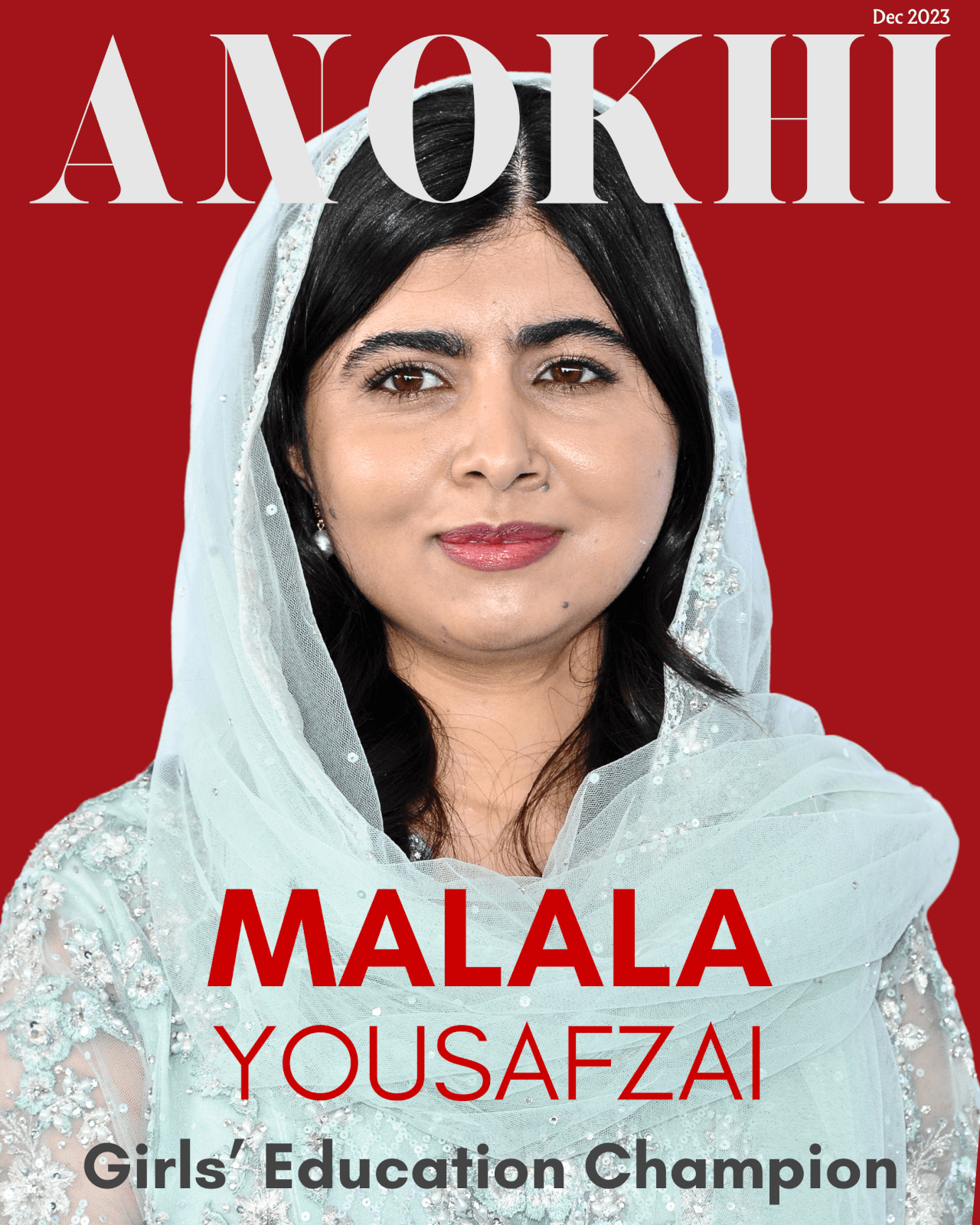
Malala as we know who at 17, became the youngest person to receive the Nobel Peace Prize in 2014 for her Malala Fund which raises money and awareness to build schools where support for such educational facilities are lacking. Since the launch of that non-profit organization in 2013, Malala has been focused on ensuring that the message of girls’ education breeding freedom reaches the underserved in Pakistan who may not understand nor appreciate how knowledge can build formidable foundations for young girls across that country and across the world. The Oxford University graduate also wanted to continue sharing activist stories through different mediums, thus her production company Extracurricular was born in 2021, with a ground-breaking deal with AppleTV +. This past January, her first documentary short Stranger At The Gate was nominated for Best Documentary Short at the Academy Awards.
4. Megha Desai: Girls’ Empowerment Champion
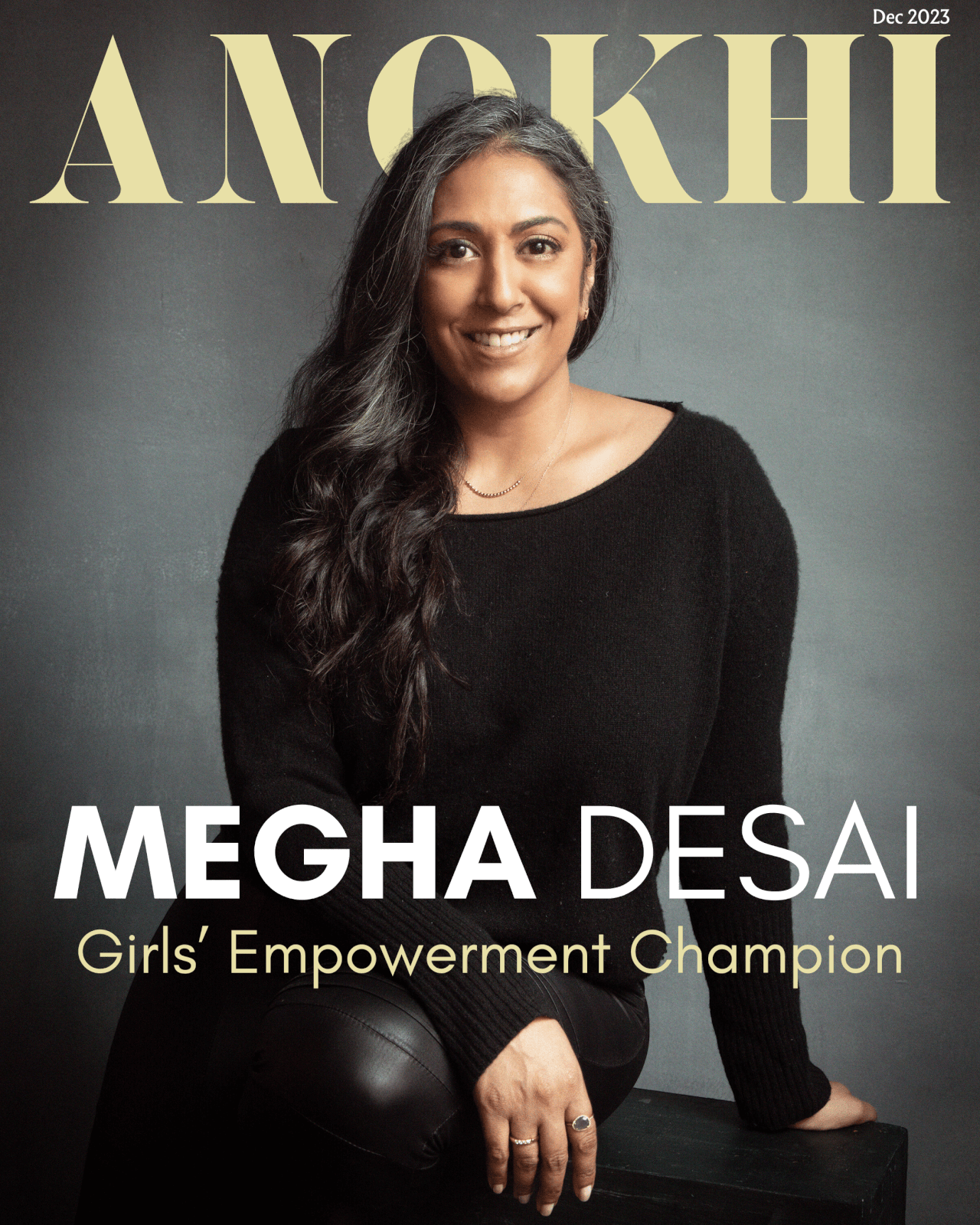
Megha Desai has been at the helm of The Desai Foundation for nearly a decade. Their focus is three-fold: empowering women and children to build a brighter future through health, livelihood and menstrual equity – so that girls can dream beyond their circumstances. The organization believes deeply in a holistic community based model to upflight not just one girl, but an entire community with her. The organization has impacted nearly 7 million lives and continues its work through its groundbreaking and award winning programs like its Asani Sanitary Napkin program. Their fundraisers also help to shape our culture here in the US. The Desai Foundation just celebrated its 10th Anniversary of its famous “Diwali On The Hudson” event, connecting an entire generation to Diwali and our culture, and ushering in a Diwali season in New York City!
5. Priyanka Chopra: Women’s Narrative Champion
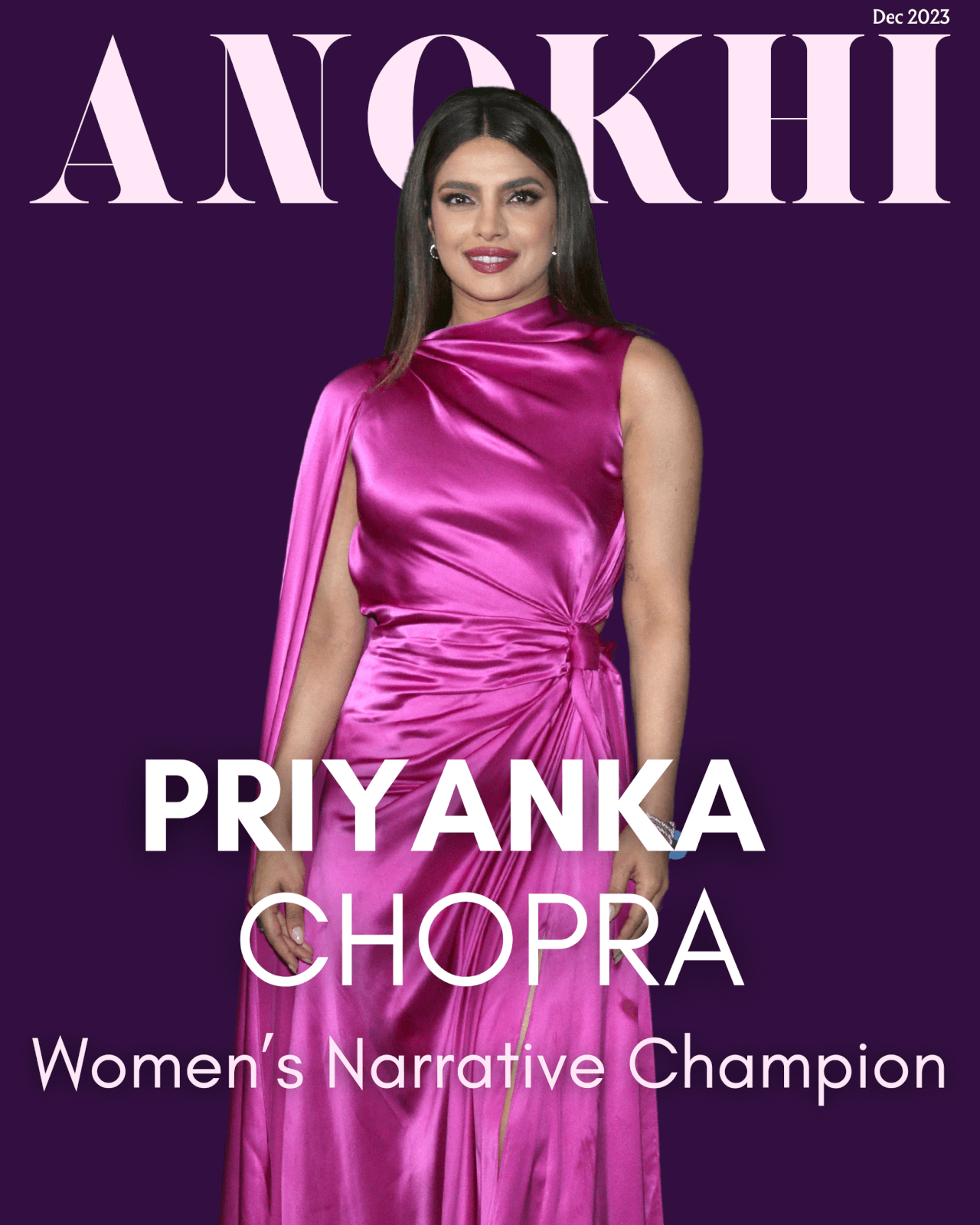
Priyanka Chopra is probably the most successful Bollywood-to-Hollywood female crossover to date. Her decades in the business and her exposure to the various industries has sharpened her voice when it comes to supporting fellow women in business, the creative space and beyond. Her multi-hyphenate mission includes being a UN Goodwill Ambassador, a best-selling author, entrepreneur/investor as well as an Oscar-nominated producer (The White Tiger). Priyanka has also been recognized by numerous organizations including the Toronto International Film Festival and the Jio Mumbai Film Festival (which she held the Chair position) for her focus on centering women storytellers from all walks of life.
During a panel discussion at the Jio Mumbai Film Festival she noted that there was a general opinion in doing female-centric films when she was working on Fashion. “At that time, I was told that actresses do female-oriented films only at the end of their career to win National Awards. I was asked why I was doing one now, when I was having a moment. There weren’t many women-led films being made at that time.” Her experience in dealing with the patriarchy whether it’s the boys club of Bollywood or being a BIPOC Hollywood newbie to the mainstream masses in the West, Priyanka has never flinched when it came to understanding her worth and celebrating her value as well as of those around her.
6. Rupi Kaur: Anti-Oppression Champion
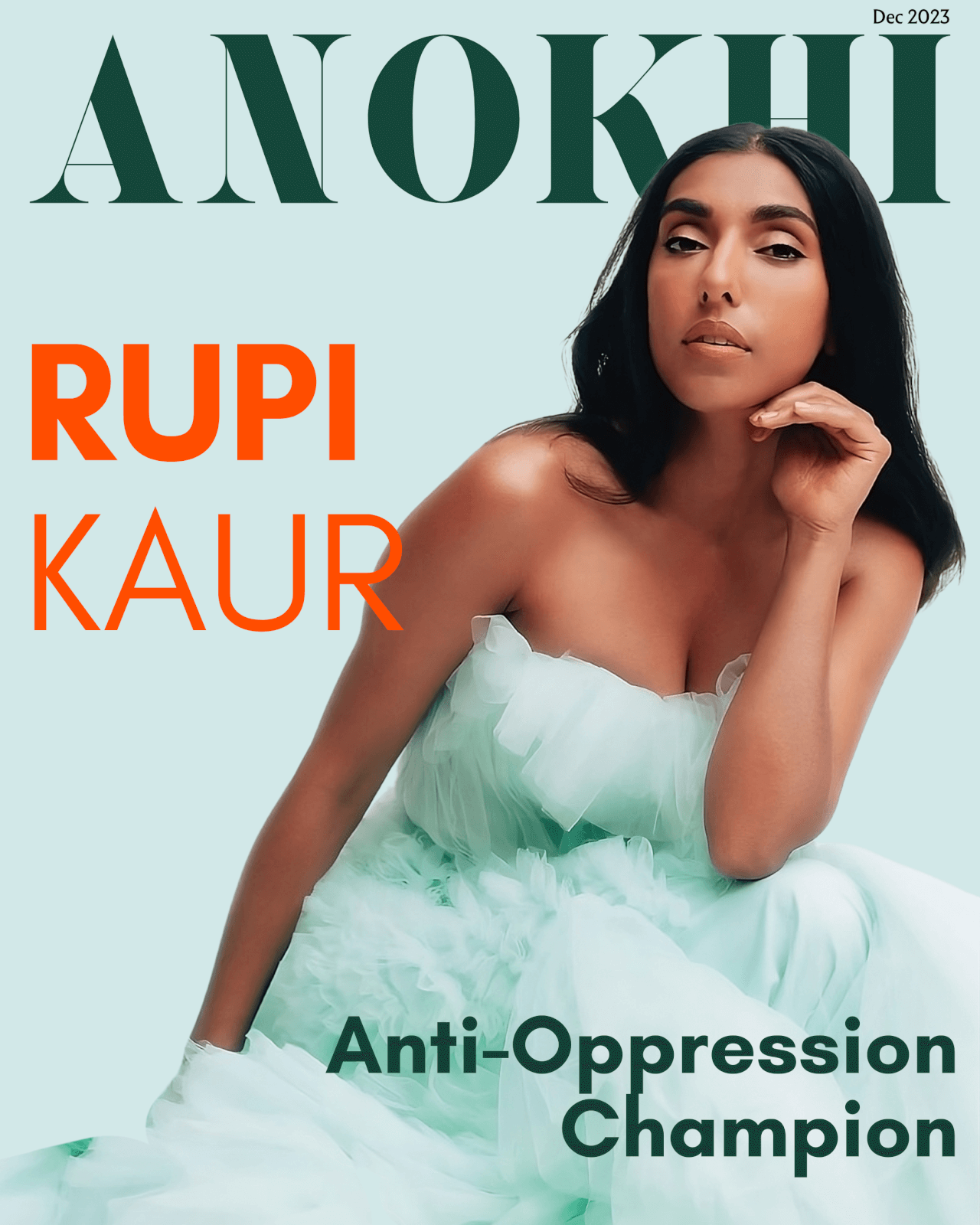
At the right side of history is where you’ll find Canadian poet-author Rupi Kaur standing tall. The globally-renowned feminist wordsmith has been fearlessly using her platform to stand up for the wronged. Between 2019 and 2021, she called out against Indian Prime Minister Narendra Modi’s Citizens Amendment Act and used her immense social following to raise awareness of the plight of India’s farmers who were protesting the proposed agricultural tax back. In 2022, Kaur stood up to the American right-wing ideology of book banning when her book Milk & Honey became one of the most banned books of the year, being delisted and removed from various high school libraries across the country.
Her most recent volley was when she publicly refused the White House’s invitation to their annual Diwali celebration. On Instagram where she posted a detailed statement she denounced American President Joe Biden and Vice President Kamala Harris for their support of Israel’s bombing of Gaza which to date has killed nearly 10,000 civilians — half of them children in just under a month. Her refusal drew global attention during a time where public notables including celebrities have more often than not stayed silent for fear of losing their livelihood. Their palpable fear of being cancelled in today’s heated climate was not something Kaur was particularly concerned about because she knew where she stood and called for others to join her. “I refuse any invitation from an institution that supports the collective punishment of a trapped civilian population,” Kaur pleaded. “As a community we cannot remain silent or agreeable just to get a seat at the table. It comes at too high a cost to human life.”
7. Thenmozhi Soundararajan: Anti-Caste Champion
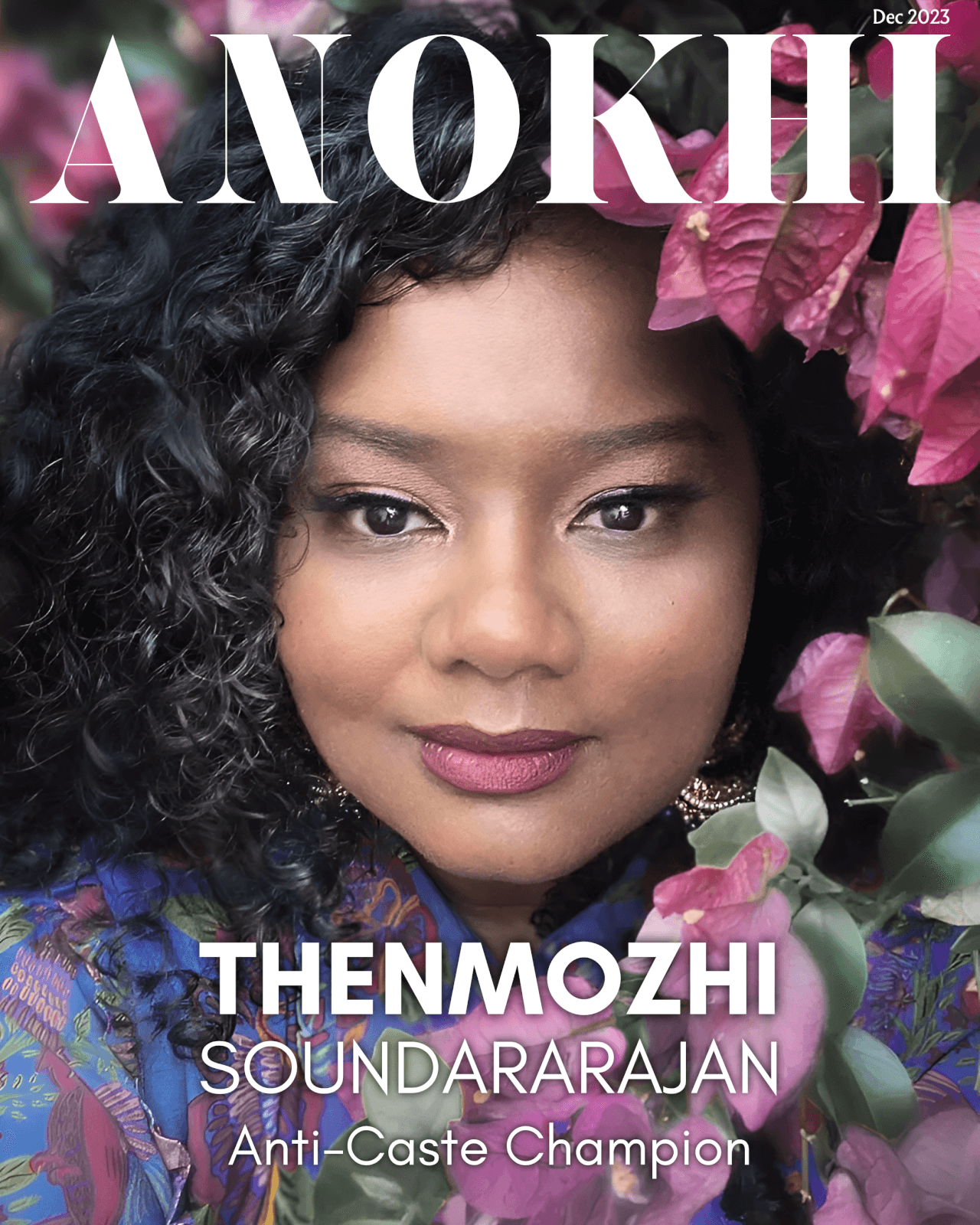
Thenmozi Soundararajan is a storyteller and activist who has been at the forefront of the Dalit movement for over 30 years. It was while she was a 19 year-old college student at UC Berkeley, where she noticed most of her higher casted professors refused to assist her. But she noticed it even earlier. She tells the The Guardian her very first exposure to caste-ism was when she was 10 and new immigrant to America. While playing with her friend, her friend’s mother realized her caste and insisted that she eat her snack on as separate plate so as not to taint the rest of her family.
Since then she produced a documentary, a podcast and wrote a best-selling book The Trauma of Caste . In 2015, she founded Equality Labs, the country’s largest Dalit civil rights organization based out of Oakland California. It is thanks to her that Equality Labs shed light on caste discrimination in the U.S. with their first every survey. The 2016 survey asked 1500 Asian Americans about caste discrimination and results were shocking. Two out of three Dalits surveyed revealed that they were mistreated by other South Asians in the workplace due to their caste, one in four had been a victim of physical and verbal assault, and one in three said they experienced discrimination in school.
Caste equity “is not a Hindu issue,” Soundararajan told The Guardian. “It’s a civil rights issue where people of a certain category are denied their rights in terms of education, socioeconomic opportunity and housing, while being disproportionately subjected to violence.”
8. Dr. Vandana Shiva: Environment Champion
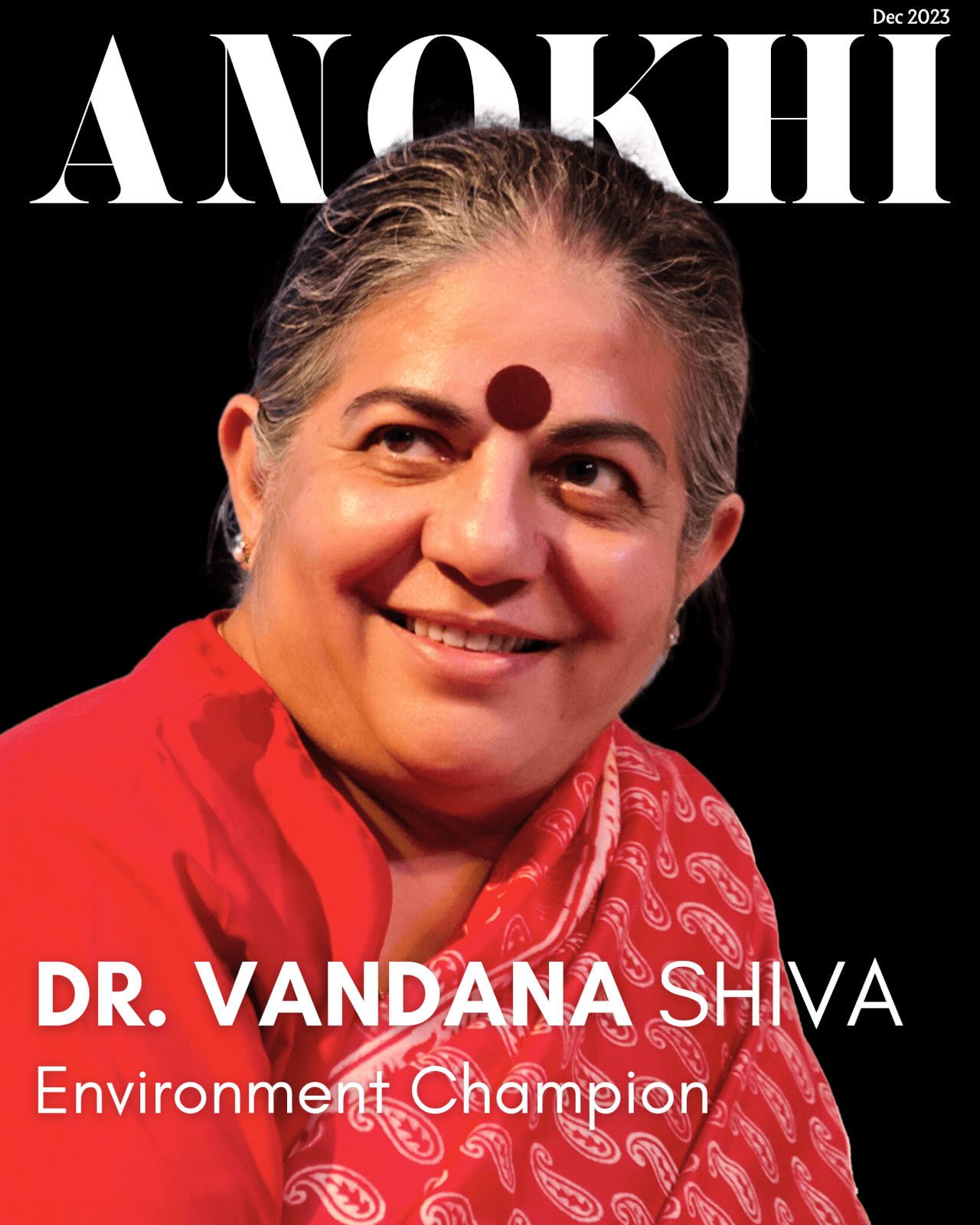
Dr. Vandana Shiva is an Indian physicist and social activist. In 1982 she created the Research Foundation for Science, Technology, and Natural Resource Policy (RFSTN), an organization focused on developing sustainable methods of agriculture. As the daughter of a forester in Dehra Dun, she has a special place in her heart for agriculture and preserving the natural habitat. After completing her grad studies in Philosophy from The University of Western Ontario in 1978, she returned to India and noticed the depletion of one of her favourite forests. She started to work on a grassroots campaign to halt clear-cut logging and the construction of large dams.
She is best known for her critique of Asia’s Green Revolution which was a global effort to increase food production in less-developed countries through higher-yielding seed stocks which increased the use of pesticides and fertilizers. She believed this practice by the Green Revolution increased pollution levels and decreased the seed diversity as well as the decline of traditional agricultural practices. This also led her to see that the poor farmers were relying too heavily on costly chemicals. In order to change that, and support the farmers her organization established seed banks throughout India to “preserve the country’s agricultural heritage while training farmers in sustainable agricultural practices.”
Dr. Vandana through founding of numerous other organizations and research facilities-authored research studies and books including her 1997 book, Biopiracy: The Plunder of Nature and Knowledge, where she charged that global corporations were depleting poorer countries of their biodiversity which she noted were tantamount to biological theft.
She has been called the “Gandhi of Grain” and an “Anti-GMO Eco-Warrior.” During her conversation with BBC Traveller in a recent interview that “protecting the Earth and indigenous cultures is more important than ever today because five centuries of colonialism and three centuries of fossil fuel-based industrialism has brought us to collapse. Indigenous people have lived in harmony with nature, respecting the Earth and her limits. They are teachers for survival in a period of extinction.”
There are so many South Asian women known and unknown who fight the good fight every single day, with very little resources and barely any recognition. They combat great adversities daily, and never give up. It’s these women who change the world. This article is in honour of them.
May they continue to hone into ‘the Durga effect’ and shine their indelible light upon the world, extinguish the dark shroud that has engulfed individuality, and fight for the right to be seen, heard, and respected yesterday and today, so that we can create a tomorrow that normalizes us all.
Main Image Photo Credit: Photo Credit: Photo 191003301 | Jameela Jamil ©️ Hutchinsphoto | Dreamstime.com (Jameela Jamil), www.kavithaemmanuel.com (Dr. Kavitha Emmanuel), Photo Credit: Photo 271146489 ©️ Starstock | Dreamstime.com (Malala Yousafzai), The Desai Foundation (Megha Desai), Photo 276182392 ©️ Hutchinsphoto | Dreamstime.com (Priyanka Chopra), www.instagram.com/RupiKaur (Rupi Kaur), www.instagram.com/DalitDiva (Thenmozhi Soundararajan), https://Navdanya.org (Dr. Vandana Shiva)
Hina P. Ansari
Author
Hina P. Ansari is a graduate from The University of Western Ontario (London, Ontario). Since then she has carved a successful career in Canada's national fashion-publishing world as the Entertainment/Photo Editor at FLARE Magazine, Canada's national fashion magazine. She was the first South Asian in...


















































